Farmers and growers surrounding the degraded Waihī Estuary are being urged to seek free support and financial help from local environmental group Wai Kōkopu to develop a plan to reduce their carbon footprint.
The Government's recent announcement to tackle climate change will require all producers to have a greenhouse gas report by the end of this year, and have a greenhouse gas emissions mitigation plan in place by 2025.
'A lot of farmers are feeling overwhelmed,” says Wai Kōkopu Project Manager Alison Dewes.
'They know they've got to move, and industry is moving in quite a positive way. Fonterra and Beef & Lamb are working actively with their farmers to build capability. But we're here with a good skilled team and have funding in place for the next three years which could save farmers up to $8000 each to plan a journey to lower their footprint, stay profitable and consider restoration.”
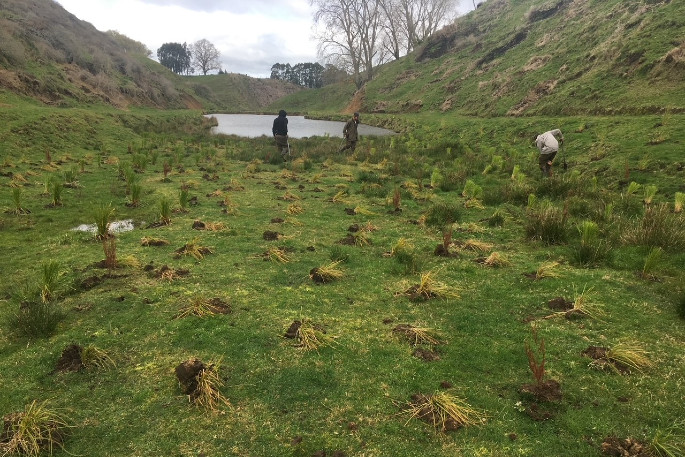
New wetlands are being created. Photo: Supplied.
Wai Kōkopu is a community-led initiative to restore the health of the Waihī Estuary. It's one of the five most degraded estuaries in New Zealand, suffering from high nitrogen and phosphorus loads, and E. coli levels in shellfish that are 430 per cent higher than what is safe to eat.
'From a catchment-specific point of view we need to look not only at emissions to the atmosphere, but emissions to water,” says Alison.
'We help farmers know their numbers – what their nutrient loss is, what their greenhouse gas emissions are, what their risk of E. coli and sediment loss is, and support them to make farm system changes like voluntarily retiring marginal land.”
Wai Kōkopu has raised almost $4m of Government and philanthropic funding to help landowners adapt to and implement change across the 34,000ha catchment which stretches from the mountains below Rotorua's lakes to the coast at Pukehina.
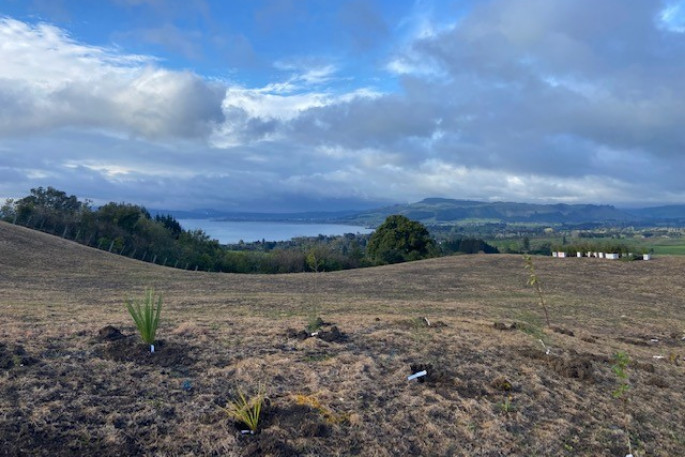
Retiring land in Rotorua lakes. Photo: Supplied.
'We can provide advice, support and funding for carbon farming and land use changes; help people to plant streambanks and steep sidlings or protect wetland and native bush; and help improve waterway health, reduce erosion, shelter for stock and enhance biodiversity.”
Alison says Wai Kōkopu has a large team of experts on board including agri science professionals, business analysts, and specialists in nutrient management, animal health, forestry, land use planning and restoration.
'Our funding is available for a limited time to support behavioural change and adapt to change. While the focus is working with pastoral farmers as they're the biggest emitters per hectare, we're also working with orchardists and other growers.”
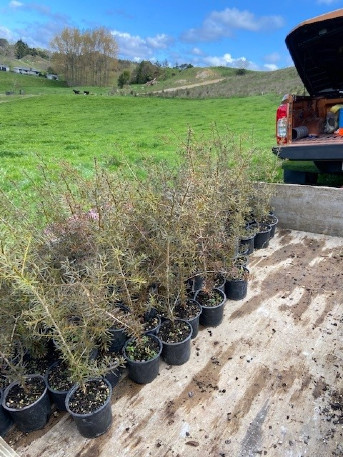
Natives are being planted on retired farm land. Photo: Supplied.
In the past year, Wai Kōkopu and Bay of Plenty Regional Council have helped local landowners retire 150ha of vulnerable land into native bush - the equivalent of one whole dairy farm.
'Over 500,000 plants are planned to go in the ground this winter so we're off to a good start in our first year.”
Alison says the new climate rules are imminent and Wai Kōkopu can help farmers make the changes necessary while still remaining profitable.
'We are farmers too and understand change is difficult. But we need to be agile to thrive given the freshwater rules and emission reduction rules that will impact farming. This is their chance to work with some highly qualified nutrient/farm system and restoration advisors. Working through options with a professional can help you create a more resilient farm system.”
For support to improve your farm and meet your carbon reduction requirements, email info@wai-kokopu.org.nz or visit www.wai-kokopu.org.nz
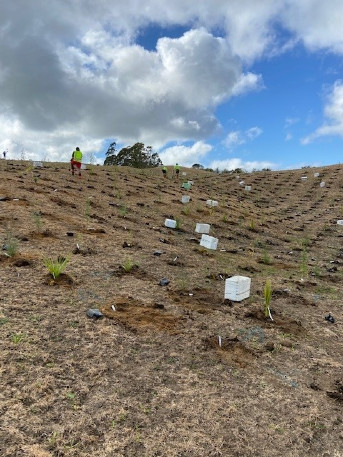
New native plantings. Photo: Supplied.

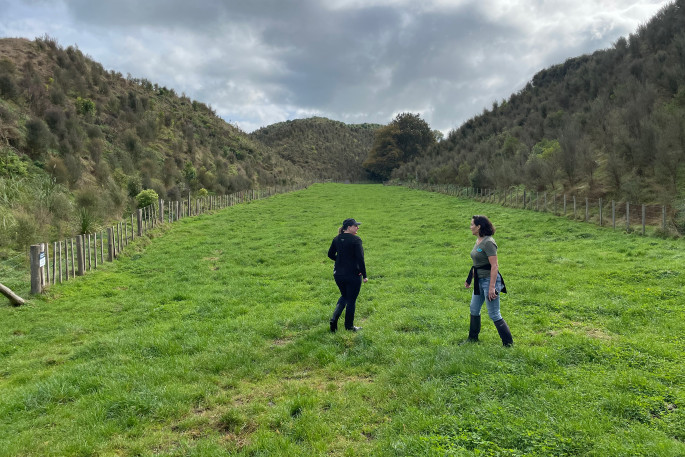

0 comments
Leave a Comment
You must be logged in to make a comment.